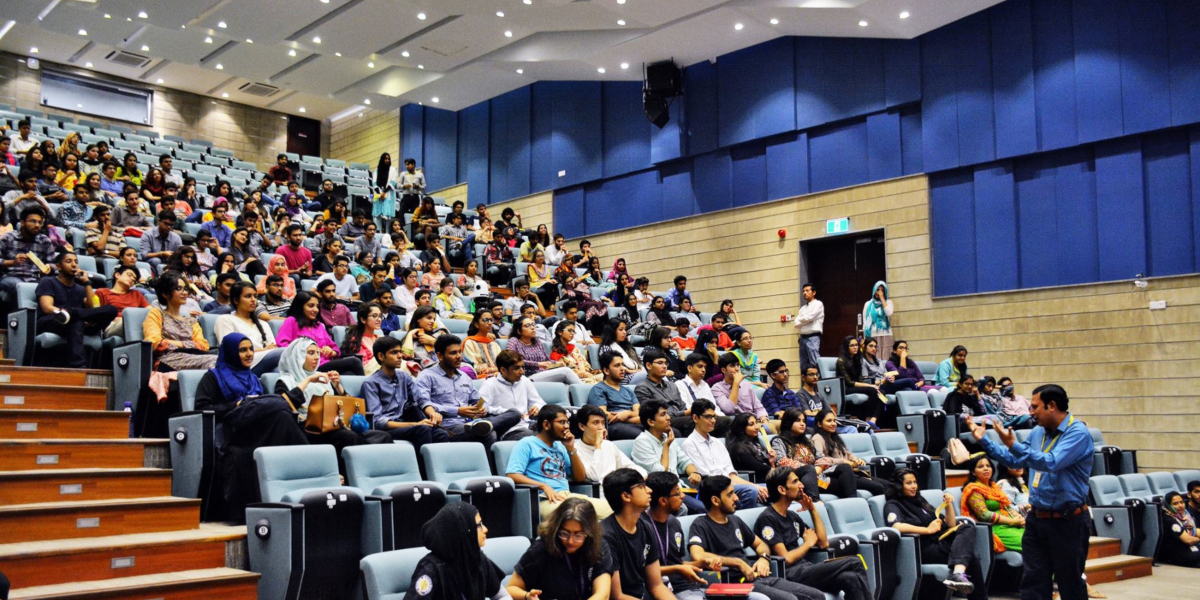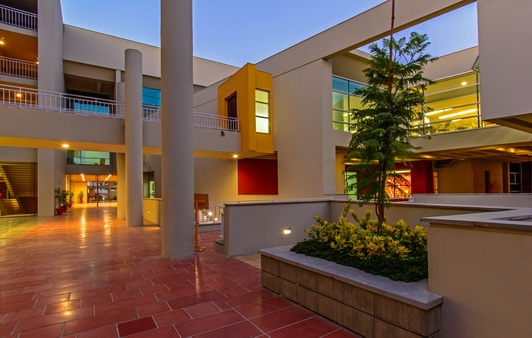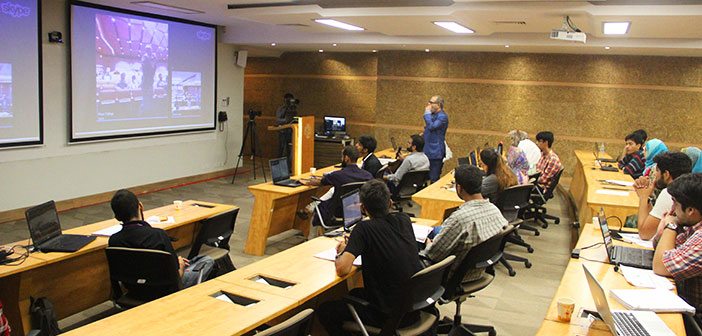Among the multitude of options for a quality higher education in science and engineering, it is becoming increasingly challenging to choose a university which sets one apart and prepares students to excel in an ever-dynamic world most effectively.
[adinserter block= “3”]
Today’s world is characterized by an unprecedented pace of change in science and technology, which needs to be reflected in the design of curricula followed by quality institutions of higher learning. With the pace of change surpassing how quickly most universities can innovate and reinvent, most of them lose touch with reality and as a consequence, suffer from a loss of relevance and prestige. So, what does it take to not only stay relevant but to be at the forefront of innovation and excellence in academia? A rigorous and future-oriented curriculum, taught and conveyed by passionate thought-leaders in an intellectually stimulating environment and state-of-the-art facility, serves as the foundation of transformative and impactful institutions of higher learning.

Facebook / Habib Uni
The instruction of Science and Engineering at Habib University (HU) pursues a unique approach by carefully blending theory with multiple opportunities for experiential learning, whereby all knowledge is imparted through HU’s Liberal Arts and Sciences framework. This integration of the Liberal Arts and Sciences plays an instrumental role in redefining instruction in Science and Engineering at HU. In addition to learning technical skills and knowledge, students at HU’s Dhanani School of Science and Engineering (DSSE) acquire the tools and the mindset to make meaningful contributions to address key challenges confronting society today.
While delving into the most current areas of scientific thought and inquiry, the interdisciplinary nature of teaching and instruction at HU ensures that students gain exposure to a range of disciplines from the arts, humanities and social sciences as well. Consequently, this project-based approach to learning, rooted in the interdisciplinary Liberal Arts and Sciences framework, gives future scientists and engineers at HU a unique edge.

Architecture
In addition to being guided by the Liberal Arts model, the teaching methodology at DSSE is embedded with the principles of ‘Design Thinking’, which is essentially an innovative, human-centric approach to problem-solving. This perspective places individuals and their needs on center-stage and merges creative diagnostic ability with compassion and sustainability. It, therefore, allows future leaders to make effective decisions at the confluence of technological possibilities, human need, and commercial success.
[adinserter block= “10”]
Currently, the DSSE at HU offers 3 innovative programs: BS Computer Science, BS Electrical Engineering and BS Computer Engineering*. DSSE students at HU will explore key areas of science and engineering, including but not limited to, Data Structures and Algorithms, Circuits, Electronics, Digital Hardware and Computer Architecture. All three majors comprehensively engage bright young minds, encouraging them to combine their technical knowledge with ample hands-on exposure and a sense of deep compassion for the world around them. One way to translate this approach into reality at DSSE is through ‘Kavish’, a carefully designed mandatory senior-year capstone project.

Habib University
It allows students to utilize their science and engineering prowess to solve real-world social issues while developing essential entrepreneurial skills. Furthermore, students stand to benefit from various other facilities and in-built provisions such as public lecture series, research opportunities, a multi-partner Study Abroad program (with partner institutions including Stanford University, University of Michigan-Ann Arbor and University of California-Berkeley, among others), and comprehensive career support to help prepare them for life beyond university.
[adinserter block= “4”]
Widely viewed by society as just technicians with focused expertise, HU is striving to change the perception along with the underlying teaching and training mechanisms in place for science and engineering students at the undergraduate level. Today’s scientists and engineers need to observe the world through multiple lenses and assume the role of sociologists, historians and humanitarians as well. HU’s DSSE combines the ‘Design Thinking’ approach to education with the integrated ‘Liberal Arts and Sciences’ framework to ensure a smooth transition of graduates from university into the real world. They develop the essential repository of tools and leadership traits to play their role as critically-conscious citizens, able and willing to think critically about and solve complex societal problems of today and tomorrow.







